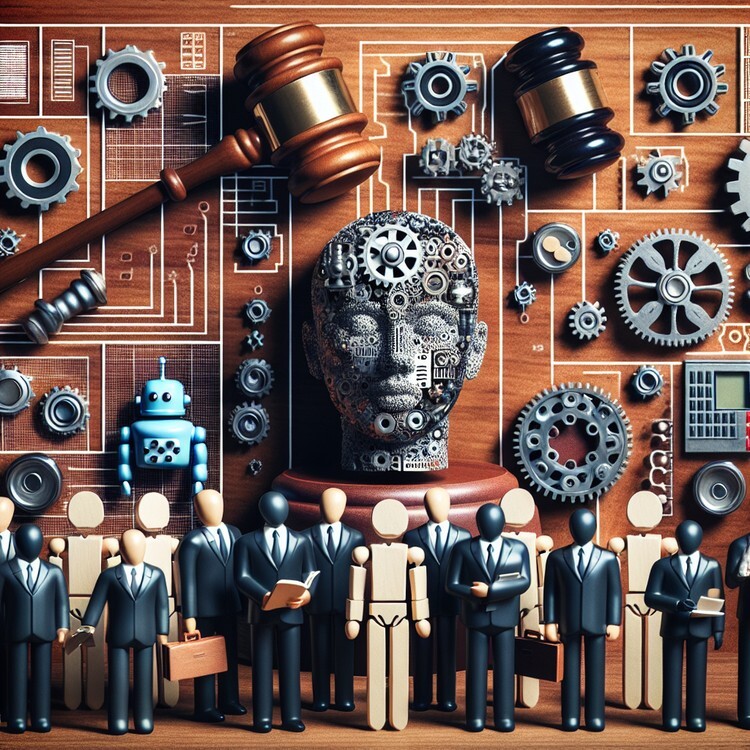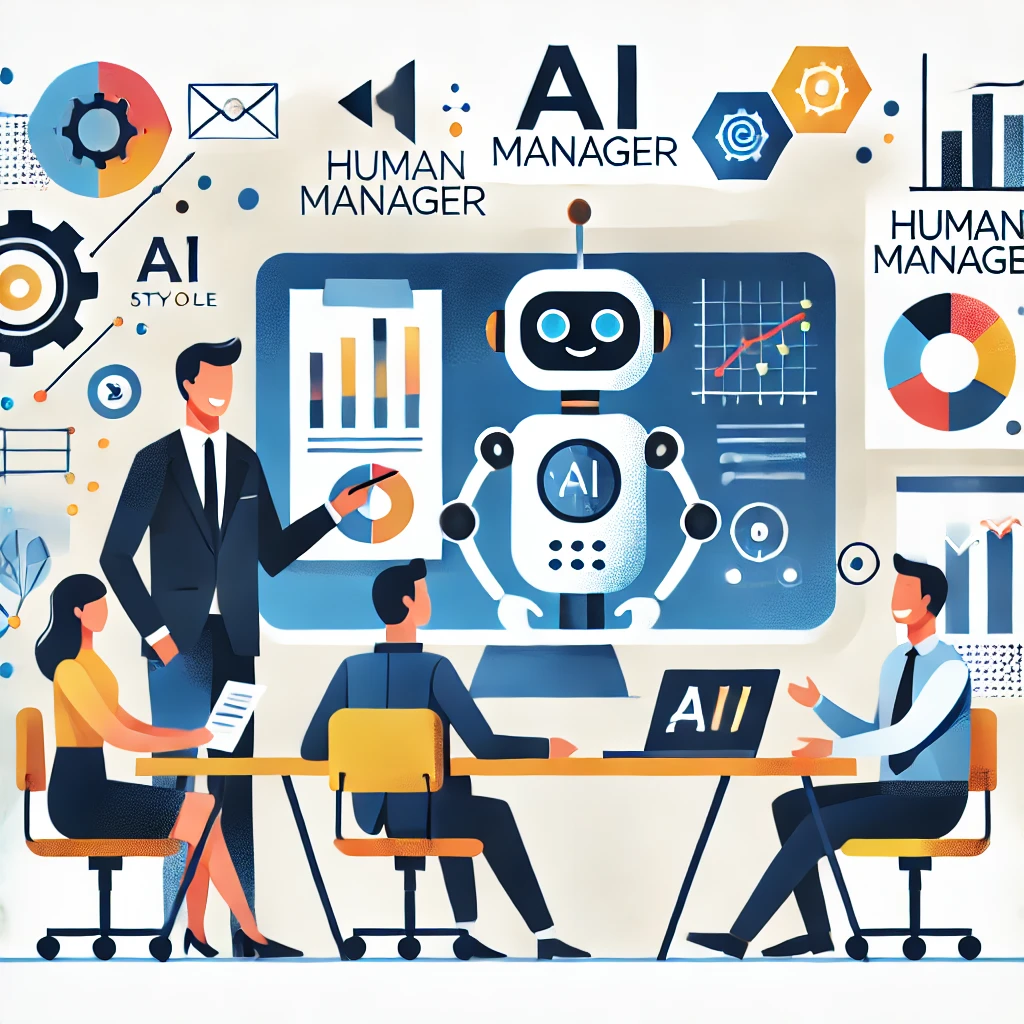The European Union (EU) has made a big decision about artificial intelligence (AI). They have created a set of rules that will be the first in the world to control how AI is used. These rules cover things like ChatGPT and facial recognition. The European Parliament will vote on the rules next year, but they won’t become law until at least 2025. The United States, United Kingdom, and China are also working on their own guidelines for AI.
The new rules have some important protections for people in the EU. They also limit how law enforcement can use AI. If someone has a problem with how AI is being used, they can complain about it. There may be fines for breaking the rules. The EU Commissioner, Thierry Breton, said that these plans are a big deal and give clear rules for using AI. He also said that the rules will help EU start-ups and researchers be leaders in the AI world. The President of the European Commission, Ursula von der Leyen, said that the AI Act will support the development of safe and trustworthy technology.
The European Parliament says that AI is software that can make things happen based on what people want. For example, ChatGPT and DALL-E are types of AI that can learn from lots of information to create new things. ChatGPT can have text conversations, and DALL-E can make pictures based on simple instructions.
In summary, the EU has made a big decision about AI and created the first set of rules in the world. These rules aim to protect people and limit how AI is used by the police. The European Parliament will vote on the rules, and they could become law in 2025. This decision is a big deal and will help EU start-ups and researchers be leaders in the AI field.
Original news source: AI: EU agrees landmark deal on regulation of artificial intelligence (BBC)
Listen:
Slow
Normal
Fast
Vocabulary:
| 1 | artificial intelligence (AI) | A type of technology that can make things happen based on what people want |
| 2 | rules | Instructions or regulations that must be followed |
| 3 | control | To have power over something and make it do what you want |
| 4 | guidelines | Suggestions or advice on how to do something |
| 5 | protections | Safeguards or measures to keep someone or something safe |
| 6 | law enforcement | The people who make sure that laws are followed and keep people safe |
| 7 | complain | To express dissatisfaction or annoyance about something |
| 8 | fines | Money that you have to pay as a punishment for breaking the rules |
| 9 | start-ups | New businesses that have just started |
| 10 | researchers | People who study and investigate to discover new things |
| 11 | software | Programs or applications that run on a computer or device |
| 12 | information | Facts or details about something |
| 13 | conversations | Talking or exchanging information with someone |
| 14 | pictures | Images or photographs |
| 15 | decision | A choice or conclusion reached after considering all the information |
Group or Classroom Activities
Warm-up Activities:
– News Summary
Instructions:
1. Divide the class into pairs or small groups.
2. Assign each group a specific section of the article to summarize.
3. Give the groups a few minutes to read and discuss their section.
4. Instruct each group to write a concise summary of their section.
5. Have each group share their summary with the class.
– Opinion Poll
Instructions:
1. Divide the class into pairs or small groups.
2. Instruct each group to discuss their opinions about the EU’s decision on AI.
3. Provide a list of discussion questions, such as: Do you agree with the new rules? How do you think AI should be regulated? What potential benefits and risks do you see with AI?
4. After the discussion, have each group choose a spokesperson to present their opinions to the class.
5. Conduct a class-wide opinion poll by asking students to vote on specific questions related to the topic.
– Vocabulary Pictionary
Instructions:
1. Write a list of key vocabulary words from the article on the board or prepare flashcards with the words.
2. Divide the class into small groups and give each group a set of vocabulary words.
3. Instruct each group to take turns selecting a word and drawing a quick sketch to represent it.
4. The other group members must guess the word based on the drawing.
5. Encourage students to use English to describe the word or discuss its meaning.
– Speed Summarizing
Instructions:
1. Divide the class into pairs.
2. Give each pair a timer (e.g., one minute) and a section of the article.
3. Instruct one student in each pair to summarize the section as quickly as possible while the other student listens.
4. After the time is up, have the listening student attempt to summarize what they heard.
5. Repeat the activity with different pairs and sections of the article.
– Future Predictions
Instructions:
1. Instruct each student to imagine they are a futurist and predict how AI will impact society in the next 10 years.
2. Give students time to brainstorm their ideas and write them down.
3. Divide the class into small groups and have students share their predictions.
4. Encourage students to discuss and debate the likelihood and potential outcomes of each prediction.
5. As a class, discuss the various predictions and their implications for the future.
Comprehension Questions:
1. What has the European Union done regarding artificial intelligence (AI)?
2. What are some examples of AI mentioned in the article?
3. When will the new rules on AI become law?
4. Which countries are also working on their own guidelines for AI?
5. How do the new rules protect people in the EU?
6. What can someone do if they have a problem with how AI is being used?
7. What did the EU Commissioner say about the new rules?
8. According to the article, how will the AI Act support the development of technology?
Go to answers ⇩
Listen and Fill in the Gaps:
The European Union (EU) has made a big decision about (1)______ intelligence (AI). They have (2)______ a set of rules that will be the first in the world to control how AI is used. These rules cover things like ChatGPT and facial recognition. The European Parliament will vote on the rules next year, but they won’t become law until at least 2025. The (3)______ (4)______, United Kingdom, and China are also working on their own guidelines for AI.
The new rules have some important protections for people in the EU. They also (5)______ how law enforcement can use AI. If someone has a (6)______ with how AI is being used, they can (7)______ about it. There may be fines for breaking the rules. The EU Commissioner, Thierry Breton, said that these plans are a big deal and give (8)______ rules for using AI. He also said that the rules will help EU start-ups and researchers be leaders in the AI world. The President of the (9)______ Commission, Ursula von der Leyen, said that the AI Act will support the development of safe and trustworthy technology.
The European Parliament says that AI is software that can make things happen based on what people want. For (10)______, (11)______ and DALL-E are (12)______ of AI that can learn from lots of information to create new things. ChatGPT can have text conversations, and DALL-E can make (13)______ based on simple instructions.
In (14)______, the EU has made a big decision about AI and created the first set of rules in the world. These rules aim to protect people and limit how AI is used by the police. The European (15)______ will vote on the rules, and they could (16)______ law in 2025. This decision is a big deal and will help EU start-ups and researchers be leaders in the AI field.
Go to answers ⇩
Discussion Questions:
Students can ask a partner these questions, or discuss them as a group.
1. What is artificial intelligence (AI)?
2. How do you think AI can be used in our daily lives?
3. Do you think it’s important to have rules and regulations for AI? Why or why not?
4. How would you feel if AI was used by law enforcement to monitor people’s activities?
5. Do you think the EU’s decision to create rules for AI will have a positive impact on start-ups and researchers? Why or why not?
6. What are some potential benefits of AI in society?
7. Are there any concerns or risks associated with the use of AI? Why or why not?
8. How do you think AI can be used to improve our safety and security?
9. Do you think it’s fair for people to be able to file complaints about how AI is being used? Why or why not?
10. What role do you think AI will play in the future?
11. How do you think AI can be used to enhance education?
12. Do you like the idea of AI being able to create new things, like ChatGPT and DALL-E? Why or why not?
13. How do you think AI can be used to address global challenges, such as climate change or healthcare?
14. Do you think it’s important for countries to have their own guidelines for AI? Why or why not?
15. What are some potential ethical considerations when it comes to the use of AI?
Individual Activities
Vocabulary Meanings:
Match each word to its meaning.
Words:
1. artificial intelligence (AI)
2. rules
3. control
4. guidelines
5. protections
6. law enforcement
7. complain
8. fines
9. start-ups
10. researchers
11. software
12. information
13. conversations
14. pictures
15. decision
Meanings:
(A) People who study and investigate to discover new things
(B) Programs or applications that run on a computer or device
(C) To express dissatisfaction or annoyance about something
(D) Suggestions or advice on how to do something
(E) A choice or conclusion reached after considering all the information
(F) Safeguards or measures to keep someone or something safe
(G) To have power over something and make it do what you want
(H) Talking or exchanging information with someone
(I) New businesses that have just started
(J) The people who make sure that laws are followed and keep people safe
(K) Facts or details about something
(L) Images or photographs
(M) Instructions or regulations that must be followed
(N) A type of technology that can make things happen based on what people want
(O) Money that you have to pay as a punishment for breaking the rules
Go to answers ⇩
Multiple Choice Questions:
1. What has the European Union (EU) done regarding artificial intelligence (AI)?
(a) Banned the use of AI completely
(b) Encouraged the use of AI without any regulations
(c) Given AI complete freedom without any restrictions
(d) Created rules to control how AI is used
2. When will the rules on AI become law in the EU?
(a) Immediately after the European Parliament votes on them
(b) In the next few months
(c) At least by 2025
(d) They will never become law
3. Which countries are also working on their own guidelines for AI?
(a) United States, United Kingdom, and China
(b) France, Germany, and Spain
(c) Russia, Japan, and Australia
(d) Brazil, India, and South Africa
4. What protections do the new rules provide for people in the EU?
(a) No protections at all
(b) Limited protections
(c) Excessive protections
(d) Important protections
5. How can someone complain about the use of AI?
(a) By keeping quiet and doing nothing
(b) By reporting the issue
(c) By taking matters into their own hands
(d) By ignoring the problem
6. What consequences might there be for breaking the AI rules?
(a) Imprisonment
(b) Public shaming
(c) Fines
(d) No consequences at all
7. According to the EU Commissioner, what do the rules provide for using AI?
(a) Clear rules
(b) No rules
(c) Unclear rules
(d) Complicated rules
8. What does the President of the European Commission say about the AI Act?
(a) It will hinder the development of AI technology
(b) It will support the development of safe and trustworthy technology
(c) It is unnecessary and should be abolished
(d) It will have no impact on the AI field
Go to answers ⇩
True or False Questions:
1. The rules have important protections for people in the EU and limit how law enforcement can use AI.
2. The EU Commissioner believes that these rules give clear guidelines for using AI and will help EU start-ups and researchers become leaders in the AI world.
3. The President of the European Commission believes that the AI Act will support the development of safe and trustworthy technology.
4. The rules will become law before 2025.
5. If someone has a problem with how AI is being used, they cannot complain about it and there may not be fines for breaking the rules.
6. The United States, United Kingdom, and China are also working on their own guidelines for AI.
7. The European Union has not created a set of rules that will control how artificial intelligence (AI) is used.
8. These rules do not cover things like ChatGPT and facial recognition.
Go to answers ⇩
Write a Summary:
Write a summary of this news article in two sentences.
Check your writing now with the best free AI for English writing!
Writing Questions:
Answer the following questions. Write as much as you can for each answer.
Check your answers with our free English writing assistant!
1. What has the European Union done regarding artificial intelligence (AI)?
2. What are some examples of AI mentioned in the article?
3. What protections do the new rules provide for people in the EU?
4. Who can someone complain to if they have a problem with how AI is being used?
5. According to the EU Commissioner, how will the new rules benefit EU start-ups and researchers?
Answers
Comprehension Question Answers:
1. The European Union has created a set of rules to control how artificial intelligence (AI) is used.
2. Some examples of AI mentioned in the article are ChatGPT and DALL-E.
3. The new rules on AI will not become law until at least 2025.
4. The United States, United Kingdom, and China are also working on their own guidelines for AI.
5. The new rules protect people in the EU by providing important protections and limiting how AI is used by law enforcement.
6. If someone has a problem with how AI is being used, they can complain about it.
7. The EU Commissioner, Thierry Breton, said that the new rules are a big deal and give clear rules for using AI.
8. According to the article, the AI Act will support the development of safe and trustworthy technology.
Go back to questions ⇧
Listen and Fill in the Gaps Answers:
(1) artificial
(2) created
(3) United
(4) States
(5) limit
(6) problem
(7) complain
(8) clear
(9) European
(10) example
(11) ChatGPT
(12) types
(13) pictures
(14) summary
(15) Parliament
(16) become
Go back to questions ⇧
Vocabulary Meanings Answers:
1. artificial intelligence (AI)
Answer: (N) A type of technology that can make things happen based on what people want
2. rules
Answer: (M) Instructions or regulations that must be followed
3. control
Answer: (G) To have power over something and make it do what you want
4. guidelines
Answer: (D) Suggestions or advice on how to do something
5. protections
Answer: (F) Safeguards or measures to keep someone or something safe
6. law enforcement
Answer: (J) The people who make sure that laws are followed and keep people safe
7. complain
Answer: (C) To express dissatisfaction or annoyance about something
8. fines
Answer: (O) Money that you have to pay as a punishment for breaking the rules
9. start-ups
Answer: (I) New businesses that have just started
10. researchers
Answer: (A) People who study and investigate to discover new things
11. software
Answer: (B) Programs or applications that run on a computer or device
12. information
Answer: (K) Facts or details about something
13. conversations
Answer: (H) Talking or exchanging information with someone
14. pictures
Answer: (L) Images or photographs
15. decision
Answer: (E) A choice or conclusion reached after considering all the information
Go back to questions ⇧
Multiple Choice Answers:
1. What has the European Union (EU) done regarding artificial intelligence (AI)?
Answer: (d) Created rules to control how AI is used
2. When will the rules on AI become law in the EU?
Answer: (c) At least by 2025
3. Which countries are also working on their own guidelines for AI?
Answer: (a) United States, United Kingdom, and China
4. What protections do the new rules provide for people in the EU?
Answer: (d) Important protections
5. How can someone complain about the use of AI?
Answer: (b) By reporting the issue
6. What consequences might there be for breaking the AI rules?
Answer: (c) Fines
7. According to the EU Commissioner, what do the rules provide for using AI?
Answer: (a) Clear rules
8. What does the President of the European Commission say about the AI Act?
Answer: (b) It will support the development of safe and trustworthy technology
Go back to questions ⇧
True or False Answers:
1. The rules have important protections for people in the EU and limit how law enforcement can use AI. (Answer: True)
2. The EU Commissioner believes that these rules give clear guidelines for using AI and will help EU start-ups and researchers become leaders in the AI world. (Answer: True)
3. The President of the European Commission believes that the AI Act will support the development of safe and trustworthy technology. (Answer: True)
4. The rules will become law before 2025. (Answer: False)
5. If someone has a problem with how AI is being used, they cannot complain about it and there may not be fines for breaking the rules. (Answer: False)
6. The United States, United Kingdom, and China are also working on their own guidelines for AI. (Answer: True)
7. The European Union has not created a set of rules that will control how artificial intelligence (AI) is used. (Answer: False)
8. These rules do not cover things like ChatGPT and facial recognition. (Answer: False)
Go back to questions ⇧















